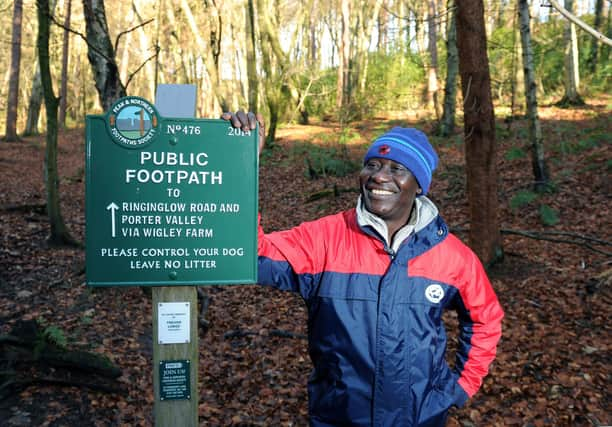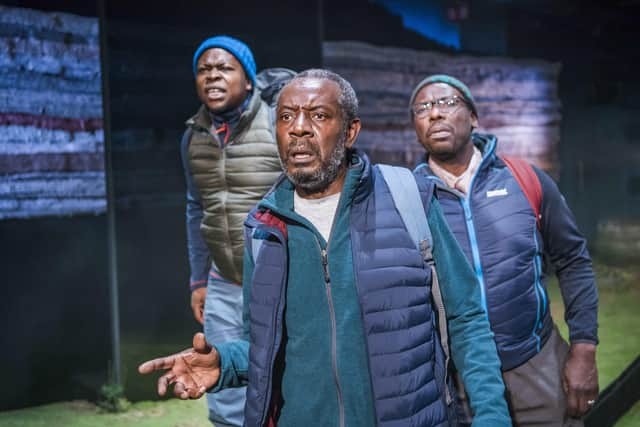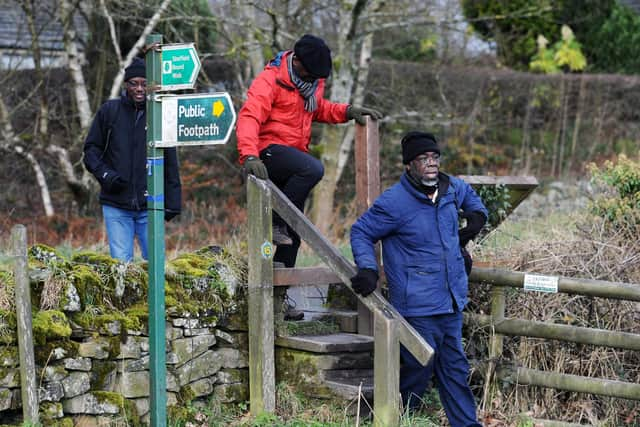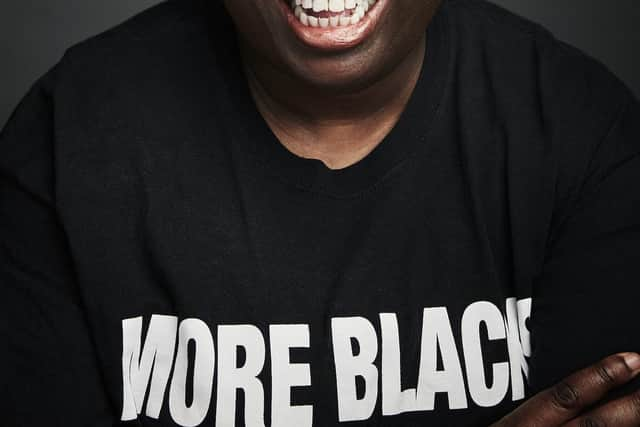Sheffield walking group take steps to reclaim black people's place in British history


Journalist Maxwell Ayamba came to Britain from Ghana in 1996 when he got a scholarship to study here and moved to Sheffield to complete a master degree in environmental management for leisure.
Maxwell decided to set up a charity, Sheffield Environmental Movement, to promote access to the countryside for BAME communities. “It was while I was working on the charity that I was approached by two friends, Donald McLean and Mark Hutchinson, to set up a walking group so that people might have an experience of the UK environment.”
Advertisement
Hide AdAdvertisement
Hide AdThey set up the Hundred Black Men Walking for Health group, the name a nod to the US civil rights Million Man March.
The group, now named Walk4Health as it now includes women and young people, still operates on the first Saturday of the month (outside lockdown).
Maxwell said the walks are about physical and mental health. “As black men we don’t really like talking about things like mental health issues.
“Walking is an opportunity for people to open up. That’s why walking is so important – when we walk we don’t judge people based on what they say. They feel comfortable sharing.”
Advertisement
Hide AdAdvertisement
Hide AdHowever, a group of black men walking in the British countryside is also a political act. Maxwell said: “When I came from Ghana in 1996 I didn’t know anything about the countryside was a contested landscape in terms of identity and race.


“Back home in Ghana, nature is just part of our lives. Notions related to space in England are especially contested.”
Other walkers they met were friendly but there was real surprise at seeing a minority group outside the city –the countryside was seen as white territory.
The point was taken up when Dawn Walton from Britain’s leading black theatre company Eclipse asked to join a walk.


Advertisement
Hide AdAdvertisement
Hide AdThey took her to Lady Canning’s Plantation, walking on a Roman road, and that made her think of black Emperor Septimus Severus in Yorkshire.
She commissioned the rapper Testament to write the piece, a “hilly hike through 500 years of black British history,” said Maxwell.
The play premiered at the Royal Exchange in Manchester in 2018 before coming to the Crucible in Sheffield on the first of two national tours.
Maxwell said: “The play was about three men, based on Donald, Mark and myself, processing our experience walking through the British landscape. There’s a double consciousness of being British and black and that’s what helped the play be so popular.”


Website: http://www.semcharity.org.uk/
Advertisement
Hide AdAdvertisement
Hide AdEditor's message: Thank you for reading this story. The dramatic events of 2020 are having a major impact on our advertisers and thus our revenues. The Star is more reliant than ever on you taking out a digital subscription to support our journalism. You can subscribe here for unlimited access to Sheffield news and information online. Every subscription helps us continue providing trusted, local journalism and campaign on your behalf for our city.
